- Home
- J. R. Rain
Sherlock Holmes and the Missing Shakespeare Page 4
Sherlock Holmes and the Missing Shakespeare Read online
Page 4
As he doubled up over his aching stomach, the man swung at his head again. Holmes turned, and felt the fist meant for his chin slide harmlessly down his cheek. The detective gathered himself and landed three swift punches to Paul’s face. Paul staggered upright and swayed uncertainly on his feet. He lurched toward Holmes, arms outstretched, and Holmes delivered a punishing uppercut to the man’s jaw. His feet, Holmes would swear till the last breath, left the ground and Paul landed flat on his back; with a whoosh and a crunch. He moved slightly and Holmes delivered an unforgiving heel kick to his jaw to finish him off.
***
A boy came rushing into my practice that evening, asking me to attend to a patient forthwith.
A man had collapsed in the street. As it was only two streets away from me, I was asked to attend to him. I immediately grabbed my bag and followed the boy toward the scene of the incident.
Arriving there, I found a small crowd of concerned citizens hovering over the fallen man, who lay on his side. I instantly crouched down beside the man and began examining him. I noticed no trauma or any mark that would explain his collapse, forcing me to conclude it had been illness or blood pressure to cause his collapse. I took his pulse and found he was alive, but not conscious.
At that moment, the boy pointed out the man who had sent him to seek me out. The man was a tall and thin, dressed in fine clothes, with large sideburns and a mustache. He had reddish hair, which was slightly longer than it should possibly have been to be entirely fashionable. But it was the eyes that betrayed him to me. I almost ejaculated his name in surprise, but a wink from those eyes stopped me doing so.
“Can you help him, Doctor Watson?” asked the disguised Sherlock Holmes.
“If someone can halt a Hackney carriage, we can get him to my practice and I shall help him further there.”
A cab was signaled and Holmes and I got the man into it. Moments later, we reached my practice and we placed the man on a table in one of my rooms.
“He will come round in half an hour, without your aid, Watson.”
“Did you do this to him, Holmes?”
Holmes nodded. “I needed to go through his pockets. I might be a dab hand at the art of picking pockets, though admittedly slightly rusty, but I cannot pick all his pockets at once. So instead, I injected him with a sedative, allowing me to bring him here, to the privacy of your humble practice in order to pilfer what he has on his person.”
“But what are you looking for, Holmes?” I asked as Holmes began rifling through the man’s clothes.
“His keys,” Holmes answered briefly.
I hoped to assist him by fishing a ring of keys out of his left trouser pocket, but Holmes ignored them and kept looking. It took him a good five minutes to open the man’s shirt and find there was a small key on a ring that had been locked into his nipple.
“Well, I would never have found that by picking his pockets,” he ejaculated cheerfully.
“That is a very odd thing to do.”
“Indeed it is.” Holmes carefully unlocked the ring, like one would an earring and slide the key from it. He then locked the ring again. “I knew he had the key on his person, but this was quite unexpected, even for me.”
“What does that key do?”
Holmes laughed. “Why, Watson, it opens a lock.”
“But what lock, Holmes?”
Holmes touched the side of his nose again. “All will be revealed to you in due time, Watson.” He drew some bank notes from a pocket of his jacket and lay them beside the man on the table. “This should cover your expenses, Doctor. This man should not have to pay for them and I will not be around when he comes to.”
“But where are you going, Holmes?”
Holmes pulled his figure straight, adjusted his jacket and pushed his hat at a jaunty angle. “That too will be revealed to you in time.” At that moment, he chose to adopt a posh accent, usually only used by the upper echelons of London society. Then he tapped his hat with his cane in greeting or goodbye and promptly marched out the door.
***
A week after this affair, I received a message from my friend, asking me to join him in Stratford-upon-Avon at the nearest opportunity I chanced to have. I thus told a colleague I would be taking a day off, informed my wife and, two days later, having made all the necessary preparations, I undertook the journey to the hometown of the Great Bard himself.
As per Holmes’s instruction, I took a room at the Pen and Sword Inn. I was pleasantly surprised by the quality of the accommodations there, but I was less pleased to find no trace of Holmes.
I took an excellent luncheon there and then remained in the common room where I read. I had brought some medical journals for the trip, knowing that I would have the chance to read them at least on the train, if not while waiting for Holmes, which I seemed to do entirely too much. I thus sat quite happily, though impatiently, in a corner, reading up on experimentations and studies in my profession, drinking tea, and later in the afternoon, ale. As the sun began setting over Stratford-upon-Avon, I ordered some food for dinner, hoping Holmes would show up soon. I had reached the last of the journals and I feared boredom would get the better of me if my friend would not grace me soon with his company.
It was only as I finished this last journal and began drinking the hot chocolate I had ordered that a familiar frame folded itself through the entrance.
The hat was gone, as were the posh clothes. He was once again in his usual attire and it was easy to see he was more at ease without the disguise he had adopted. He sat down at my table and hailed the waiter for an empty cup. The moment it arrived, Holmes poured himself some hot chocolate from my steaming jug.
“I am truly glad to be myself again. I can spend months pretending to be the scum of London, but trying to mix with the peers of the realm, the rich and the famous and all their varying offspring, is a job I would rather leave than take.”
“Is that what you have been doing, Holmes?”
He grumbled something and drank some of the beverage from his cup. “The underworld is my domain, but the underworld cannot tell me where this manuscript is. Nor could it tell me where the men came from who burgled my abode.”
“So you traversed the upper classes?”
“Indeed.”
“And did you find what you were looking for?”
Holmes grimaced then. “I believe I did. Though I have yet to test that belief.”
I left that statement unquestioned; knowing Holmes’s testing of his theories and knowledge would eventually involve yours truly. Instead, I queried him on the contents of the missing manuscript.
“Why, Watson, it is a missing play by William Shakespeare,” he exclaimed.
“I am, of course, aware of that, Holmes. But I was wondering as to the play itself. Perhaps you can relay the tale it tells to me.”
Holmes gave a vague smile. He poured the last of the hot chocolate into his own cup and ordered some more for my sake. Having taken another sip, he launched into the tale.
“Costarde is an old man already when he is sent from France to be the new ambassador to the court of the King of Spain. He has always been unlucky in love, constantly betrayed or simply unsuccessful in finding a suitable marriage partner. In Madrid’s Escordia Palace, he meets Maria. She is of a noble family; her father is chamberlain to the King of Spain, Don Ciprian.
“He falls hopelessly in love and begins courting her, but her father prevents him from continuing his pursuit of her. He sends her away to their country estate and arranges a match with Don Lorenzo. As the eldest daughter of an ancient family, she is expected to marry into another Hidalgo family, descendants of those knights who fought the Moors.
“She goes through a short courtship, as is customary of course, and then prepares to marry Don Lorenzo. But it is then that Costarde finds her and continues his courting of her in secret. She responds and they become secret lovers. Of course, Don Lorenzo finds out, as does her father, and Don Lorenzo challenges Costarde to a duel. I
nstead, Costarde retreats to Madrid, but Don Lorenzo pursues him there and it is quite obvious he will never let him off.
“Costarde writes a short comedy ridiculing the whole situation and Maria performs it with her sister Anna and her friend at a party thrown in honor of Don Lorenzo’s arrival in Madrid. Don Lorenzo sees the error of his challenge, but his honor will not allow him to stop pursuing Costarde. He seeks him out in private, slaps him and says his honor is now satisfied.
“They then find Don Ciprian and Maria and they agree Maria will marry Don Lorenzo, who does love her sincerely. Costarde is heartbroken, but cannot agree to anything else without facing another challenge from Don Lorenzo and subsequently from Don Ciprian. He says his goodbye to Maria and prepares to resign his duties in Madrid. As he writes his letter to the King of France begging to be relieved of his position, Anna, Maria’s sister, comes to his chambers and confesses to him she has admired him from afar all this time. She begs him to reconsider withdrawing from Madrid and they begin a courtship. Don Ciprian is happy for the match to take place, to marry his second daughter to a wealthy French nobleman. They wed on the same day as Don Lorenzo and Maria and they all live happily ever after.”
Holmes gave a small bow and I clapped my hands heartily. “A fine tale, indeed,” said I.
“I imagine Shakespeare and Thomas Kydd drew on each other for the names and setting. They probably came to blows over it.”
“It sounds a familiar story.”
“I also imagine Shakespeare drew heavily on his affair with Lady Anne Galham for his inspiration,” he said airily. “Luckily, this is a comedy and not a tragedy.”
“That would seem likely.”
“But, my dear Watson.” He brought his hands down on the surface of the table. “You have been studying all day and I have been busy all day. I reckon it is time to retire and pick up the trail in the morning.”
“The trail?”
“Yes, the trail. You did not think I would ask you to come here if I did not need your assistance in tracking down whoever is at the heart of this case?” With that, he rose and he went up the stairs to the room he had engaged.
Chapter Seven:
Old Friends
“I need you to run an errand for me, Watson,” Holmes said over our breakfast.
I blinked at that but agreed to do what he asked.
“There is a notary here in town. I want to see the will of Lord Galham.”
“The current earl?”
Holmes frowned. “It would seem to me to be elementary that I meant the will of the previous earl.”
“How do you propose I go about that?”
“I believe Mr. Kendricks, who is the junior partner of the notary firm of Jennings and Kendricks, is a brother of a friend of yours. Your natural charms should win his confidence.”
“Winning his confidence does not equate to him breaking the confidentiality of his profession and showing me the will of a respected member of society.”
“I have full faith in you, Watson.”
Holmes did not divulge any further details to me, instead leaving me to my own devices the rest of that day.
And so I sought out the office of Mr. Kendricks, only to discover that Holmes was right, as he usually is. Llewelyn Kendricks was the younger brother of Rhodri Kendricks, a Welshman in whose company I had spent many a happy hour. He had been a coal merchant and settled in London for a while before returning to the Black Hills. I had visited him at his Black Hills residence and he had told me in passing that his brother, Llewelyn, had taken up a position as a solicitor in London. Of course, this was many years ago.
Drawing on my acquaintance with Rhodri, I made my announcement and was received by Llewelyn Kendricks. He offered me tea and we sat and talked for a while.
After an hour, I questioned him on his knowledge of the Galham family and the tragedy that had taken place at Galham House.
“You know, it was, in fact, the old earl who interceded and helped me get this position,” said the younger Kendricks.
“Was it now?”
He nodded. “Lord Galham was a good friend. We met in London, at the Welsh Society.”
“The Welsh Society?”
“Lord Galham’s mother was the youngest daughter of the Marquis of Pembroke. He spent many a month in Wales as a child and he was always fascinated by the history, the language and the culture. The only place close to the center of power to speak the Cambrian tongue was at the Welsh Society, and it is thus we met. We became close friends and spent rather a lot of time together. When his father passed and left the estate to him, he retired to run the house and the estate. I think he felt lonely, and as I was still looking for a steady position in London, he interceded to get me this job.”
“You would not rather have stayed in London? It seems a country notary is not the same as a position in the city.”
“I would, but I decided the security of this position would be preferable over a lower position in London and the uncertainty that often goes with it.”
“And being close to a friend, I take it?”
Kendricks smiled. “And that too.”
“Is there not a Mrs. Kendricks?” I asked him then.
He looked down and shook his head. “Alas, no. It, therefore, has been rather lonesome here since the tragedy that shook us all to the very cores of our beings. All I have had to distract me from the tragic loss of my friend is my work and that is hardly a suitable distraction all the time. And unfortunately after several years, I am still essentially a stranger here. An alien, so to speak.”
“I can understand that. My wife hails from Berwickshire and still often feels an alien in London. It must be worse still in a country town like this.”
***
After our conversation, Mr. Jennings, his business partner, came into Kendricks’s office and invited both of us to supper with him and his wife. I tried to decline, but I could not do so gracefully and thus accepted.
I left Kendricks for a few hours, allowing him to complete his business for the day and allowing myself to enjoy the old town of Stratford-upon-Avon. I bought a hat for my wife and found one shop that sold excellent stockings, which I also obtained for her. A bookshop provided me with some more reading material for that evening, including the local newspaper. I returned to the inn for a while to have some tea and then joined Kendricks again.
Together we walked to the edge of the town, where he resided. A boy opened the door and, upon recognizing Kendricks, he let us in. He led us through the house to the parlor. His father, Mr. Arnold Jennings, was seated in his chair in the sitting room at the back of the house. The parlor was an unusual room, as one wall was nearly taken up by an entire window, but I could see why it had been constructed in such a manner. The room faced south and was flooded with light. The view was of their sizable garden and the river beyond. I remarked upon it and Jennings graciously and smilingly accepted the compliments.
“Some stately homes have rooms like this, but it is rare the middle classes will have such a design. I invested a fortune rebuilding this part of the house, but it was worth every penny.”
“When did you have this done?” asked I.
“Only in the last two months. Some investments of mine worked out rather well and after a little conclave with my wife, we decided this would be a marvelous way to spend the money.”
“It is indeed,” I replied. “My wife would dearly like to have a room like this in our own home. I doubt, however, it will work as well in London as it does here.”
Jennings smiled. “Indeed. Maybe it will work in Chiswick or Twickenham though?”
“Ah, but that would require even more good fortune to relocate to such towns.”
Kendricks and Jennings both laughed and it was then the maid came to summon us to the dining room.
Mrs. Jennings and Jennings’s boys and daughter were waiting there. The table was wonderfully laid out with a roast, roasted vegetables and potatoes. It was a meal that made my mouth water im
mediately, as it was a rare treat to find this bounty in the center of London. Even with the income of a doctor, as I had the fortunate disposal of, access to this kind of fresh country produce was very limited.
The conversation over the meal inevitably turned to business and of course life in London. Mrs. Kendricks was quite interested in the social affairs of the city, the gossip of town and what was currently in the theater. The latest play I had seen was a production of Marc Anthony and Cleopatra at Drury Lane and she was quite keen to hear about it, even if the play itself must have been well known to her.
At the end of the meal, the maid servant brought in a trifle, which was consumed with relish to the last spoonful. Mrs. Jennings and the children then retired and Jennings produced some excellent brandy and choice cigars.
“You do have a superb taste in tobacco, Jennings,” remarked Kendricks.
“A gift from Lord Galham, Kendricks.”
“You are close with the new earl?” I inquired of Jennings.
He nodded, blowing out a large cloud of smoke. “We have known each other for quite a while. Reginald and I went to Sunday school together, right here in Stratford-upon-Avon. They, of course, were taught by a governess and tutors, but their mother insisted they attend local Sunday school. Reginald and I, being the same age, we became fast friends.”
“Why did she insist on that?” Kendricks demanded. “Does Galham House not have a chapel?”
“It does, but Lady Edith, the Dowager Countess Galham, is the daughter of a parson. She insisted the family attend a service in the town church every week.” Jennings grinned. “Though there was a rumor about it at the time that she did so for less than holy reasons.”
“An affair?” I asked.
“With Reverend Jones, yes.”
Kendricks blinked. “Reverend Jones? The retired minister? Does his land not border the dowager’s?”

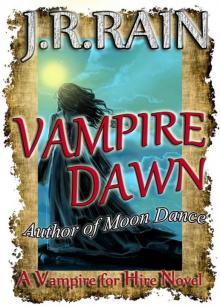 Vampire Moon
Vampire Moon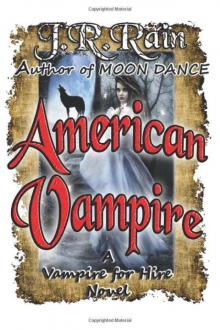 American Vampire
American Vampire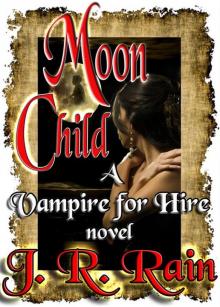 Moon Child
Moon Child Moon Island
Moon Island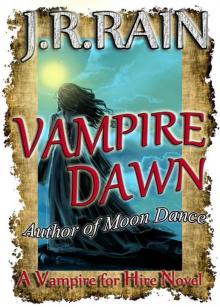 Vampire Dawn
Vampire Dawn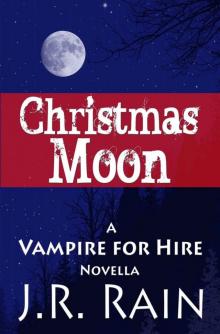 Christmas Moon
Christmas Moon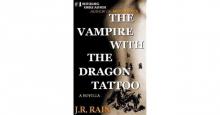 The Vampire With the Dragon Tattoo
The Vampire With the Dragon Tattoo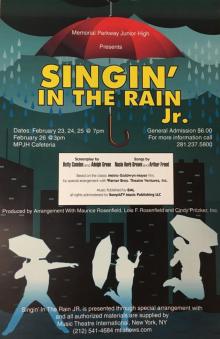 Arthur
Arthur Broken Ice (Immortal Operative Book 1)
Broken Ice (Immortal Operative Book 1) Vampire Games
Vampire Games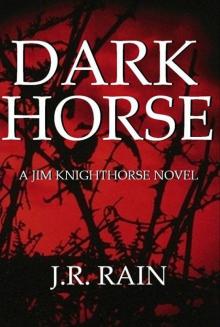 Dark Horse
Dark Horse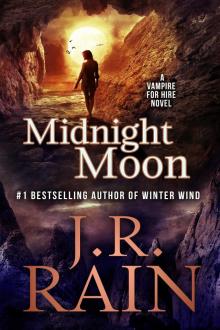 The Vampire Who Played Dead
The Vampire Who Played Dead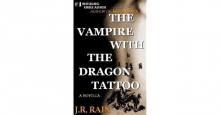 The Mummy Case
The Mummy Case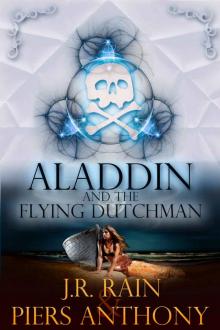 Aladdin and the Flying Dutchman (The Aladdin Trilogy Book 3)
Aladdin and the Flying Dutchman (The Aladdin Trilogy Book 3) Aladdin Relighted (The Aladdin Trilogy Book 1)
Aladdin Relighted (The Aladdin Trilogy Book 1)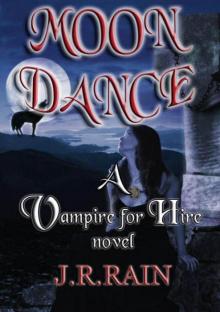 Moon Dance (Vampire for Hire #1)
Moon Dance (Vampire for Hire #1)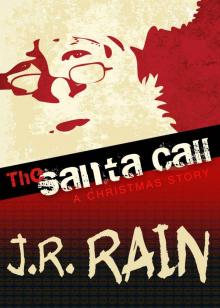 The Santa Call and Other Stories
The Santa Call and Other Stories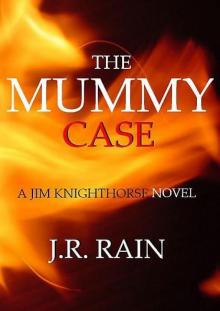 The Mummy Case jk-2
The Mummy Case jk-2 Vampire Gold
Vampire Gold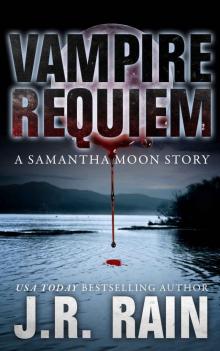 vampire requiem
vampire requiem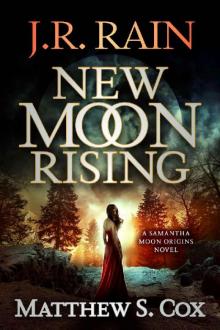 New Moon Rising (Samantha Moon Origins Book 1)
New Moon Rising (Samantha Moon Origins Book 1) The Journey
The Journey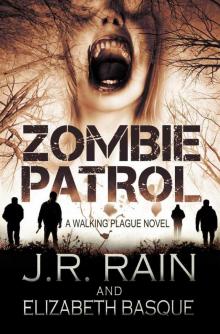 Zombie Patrol (Walking Plague Trilogy #1)
Zombie Patrol (Walking Plague Trilogy #1)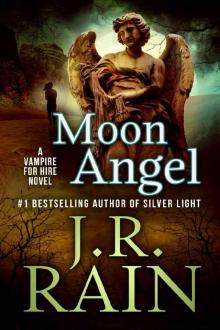 Moon Angel (Vampire for Hire Book 14)
Moon Angel (Vampire for Hire Book 14) Vampire for Hire: First Eight Short Stories (Plus Samantha Moon's Blog and Bonus Scenes)
Vampire for Hire: First Eight Short Stories (Plus Samantha Moon's Blog and Bonus Scenes)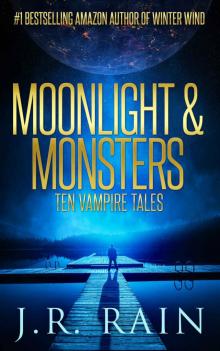 Moonlight & Monsters: Ten Vampire Tales
Moonlight & Monsters: Ten Vampire Tales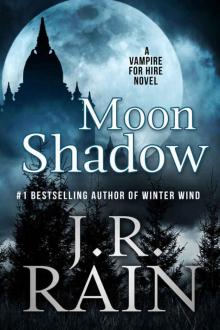 Moon Shadow (Vampire for Hire Book 11)
Moon Shadow (Vampire for Hire Book 11)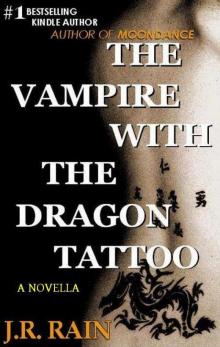 The Vampire With the Dragon Tattoo (Spinoza Series #1)
The Vampire With the Dragon Tattoo (Spinoza Series #1)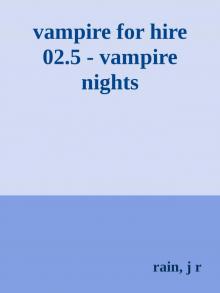 vampire nights
vampire nights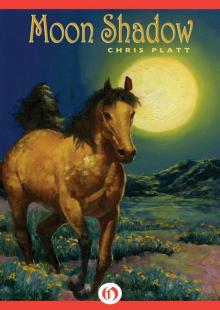 Moon Shadow
Moon Shadow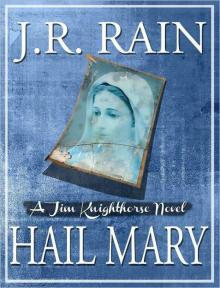 Hail Mary
Hail Mary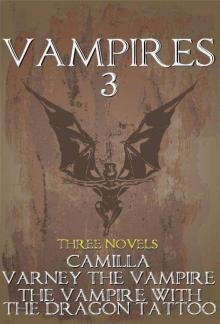 Vampires 3
Vampires 3 Moon Island (A Vampire for Hire Novel)
Moon Island (A Vampire for Hire Novel)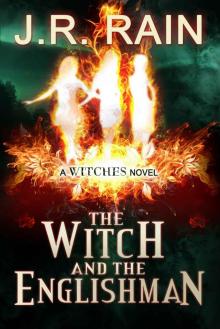 The Witch and the Englishman (The Witches Series Book 2)
The Witch and the Englishman (The Witches Series Book 2)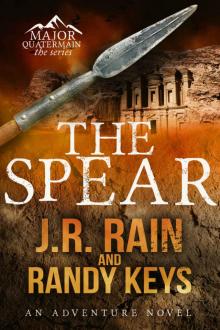 The Spear (Major Quatermain Book 1)
The Spear (Major Quatermain Book 1)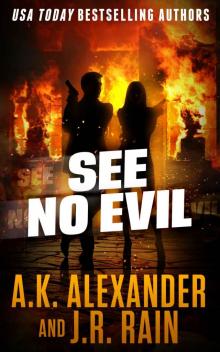 See No Evil (The PSI Trilogy Book 2)
See No Evil (The PSI Trilogy Book 2)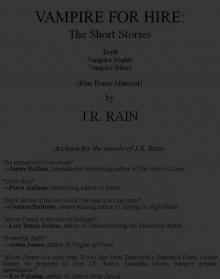 Vampire for Hire: All Three Short Stories
Vampire for Hire: All Three Short Stories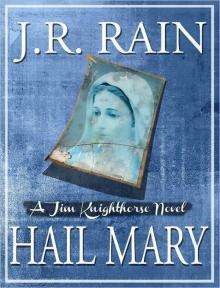 Hail Mary jk-3
Hail Mary jk-3 Silver Light
Silver Light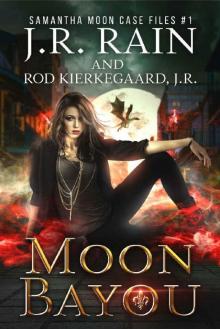 Moon Bayou
Moon Bayou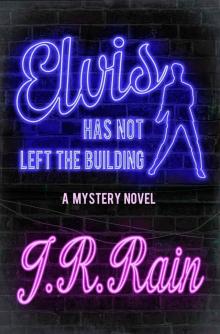 Elvis Has Not Left the Building
Elvis Has Not Left the Building Pyramid of the Gods
Pyramid of the Gods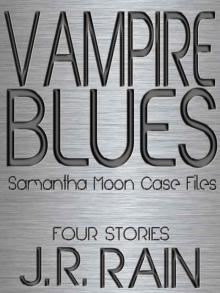 vampire blues
vampire blues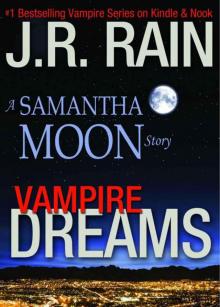 Vampire Dreams
Vampire Dreams Samantha Moon: First Eight Novels, Plus One Novella
Samantha Moon: First Eight Novels, Plus One Novella Moon Investigations: Books Three and Four
Moon Investigations: Books Three and Four blue moon
blue moon The Drifting Gloom (Maddy Wimsey Book 2)
The Drifting Gloom (Maddy Wimsey Book 2)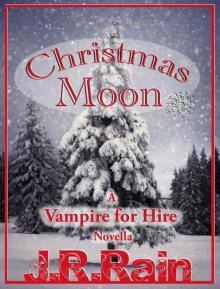 Christmas Moon (A Vampire for Hire Novella)
Christmas Moon (A Vampire for Hire Novella)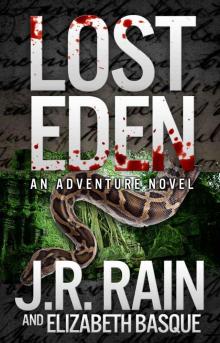 Lost Eden
Lost Eden Dolfin Tayle
Dolfin Tayle vampire for hire 02.5 - vampire nights
vampire for hire 02.5 - vampire nights Blood Moon (Samantha Moon Case Files Book 2)
Blood Moon (Samantha Moon Case Files Book 2) Easy Rider: A Jim Knighthorse Story (Short Story)
Easy Rider: A Jim Knighthorse Story (Short Story) Lavabull
Lavabull The Lost Ark
The Lost Ark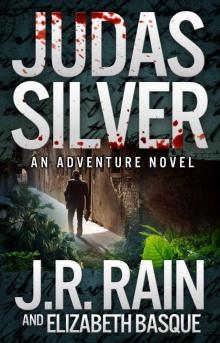 Judas Silver
Judas Silver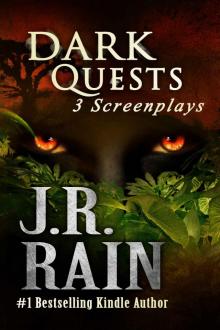 Dark Quests (Three Screenplays)
Dark Quests (Three Screenplays)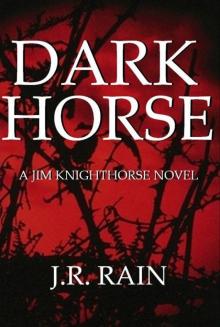 Dark Horse (A Jim Knighthorse Novel)
Dark Horse (A Jim Knighthorse Novel)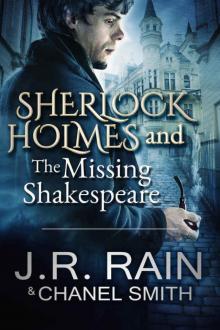 Sherlock Holmes and the Missing Shakespeare
Sherlock Holmes and the Missing Shakespeare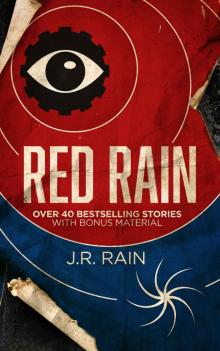 Red Rain: Over 40 Bestselling Stories
Red Rain: Over 40 Bestselling Stories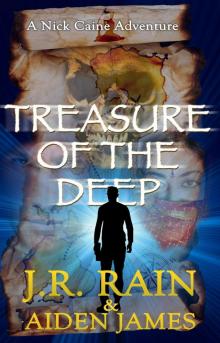 Treasure of the Deep
Treasure of the Deep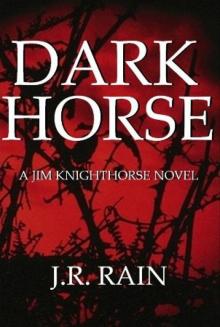 Dark horse jk-1
Dark horse jk-1 Ghosts of Christmas Present: A Dead Detective Short Story (The Dead Detective)
Ghosts of Christmas Present: A Dead Detective Short Story (The Dead Detective) Zombie Mountain
Zombie Mountain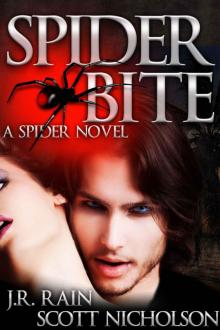 Spider Bite: A Vampire Thriller (The Spider Trilogy Book 3)
Spider Bite: A Vampire Thriller (The Spider Trilogy Book 3) Aladdin Sins Bad (The Aladdin Trilogy Book 2)
Aladdin Sins Bad (The Aladdin Trilogy Book 2)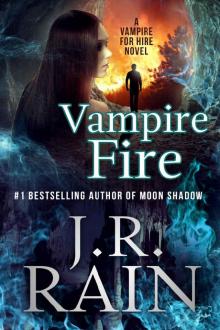 Vampire Fire
Vampire Fire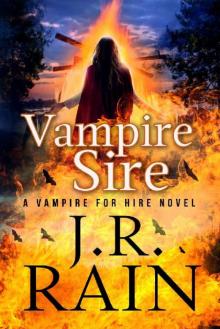 Vampire Sire (Vampire for Hire Book 15)
Vampire Sire (Vampire for Hire Book 15)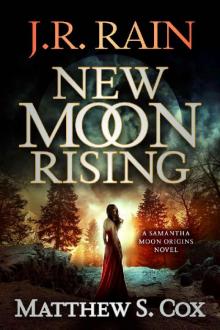 New Moon Rising
New Moon Rising The Walking Plague Trilogy
The Walking Plague Trilogy Moon Extras: Samantha Moon Bonus Scenes
Moon Extras: Samantha Moon Bonus Scenes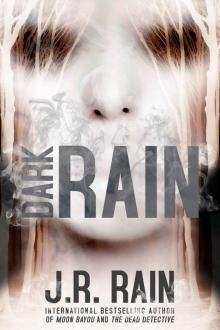 Dark Rain: 15 Short Tales
Dark Rain: 15 Short Tales Hear No Evil (The PSI Trilogy Book 1)
Hear No Evil (The PSI Trilogy Book 1)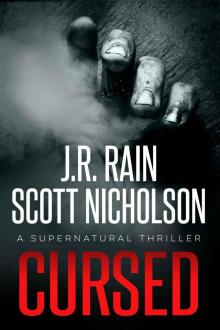 Cursed
Cursed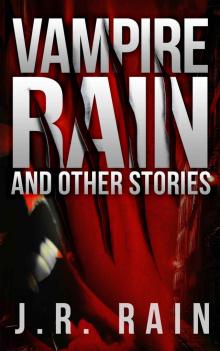 Vampire Rain and Other Stories (Includes Samantha Moon's Blog)
Vampire Rain and Other Stories (Includes Samantha Moon's Blog) Jim Knighthorse Series: First Three Books
Jim Knighthorse Series: First Three Books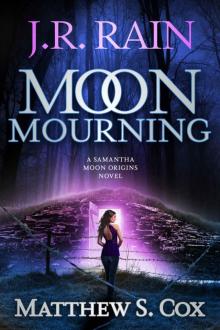 Moon Mourning (Samantha Moon Origins Book 2)
Moon Mourning (Samantha Moon Origins Book 2) The Devil's Eye
The Devil's Eye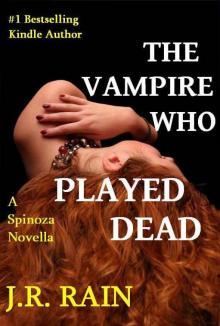 The Vampire Who Played Dead (Spinoza Series #2)
The Vampire Who Played Dead (Spinoza Series #2)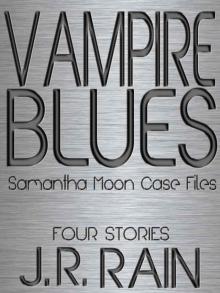 Vampire Blues: Four Stories (Samantha Moon Case Files #1)
Vampire Blues: Four Stories (Samantha Moon Case Files #1) Silver Light (Alexis Silver Book 1)
Silver Light (Alexis Silver Book 1)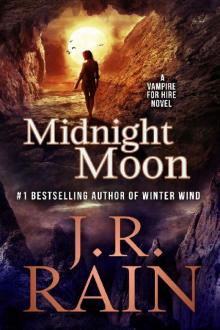 Midnight Moon
Midnight Moon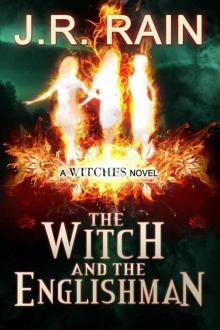 The Witch and the Englishman
The Witch and the Englishman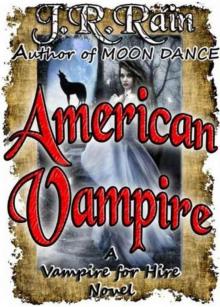 Vampire for Hire
Vampire for Hire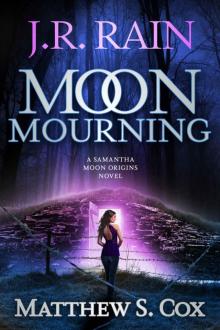 Moon Mourning
Moon Mourning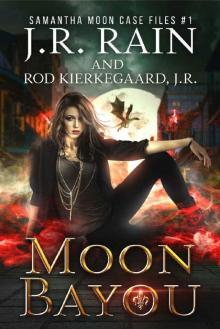 Moon Bayou (Samantha Moon Case Files Book 1)
Moon Bayou (Samantha Moon Case Files Book 1)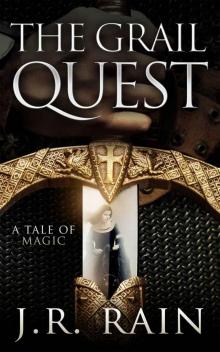 The Grail Quest (The Avalon Book 1)
The Grail Quest (The Avalon Book 1)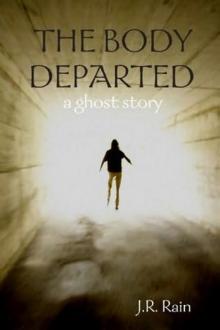 The Body Departed (2009)
The Body Departed (2009)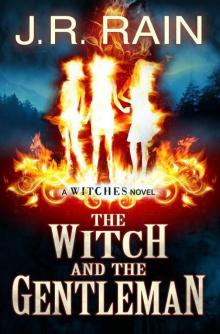 The Witch and the Gentleman
The Witch and the Gentleman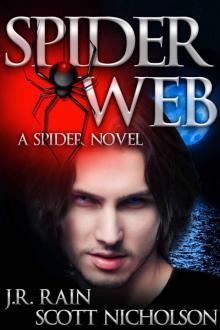 Spider Web: A Vampire Thriller (The Spider Trilogy Book 2)
Spider Web: A Vampire Thriller (The Spider Trilogy Book 2)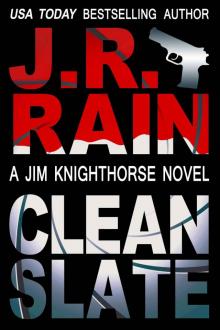 Clean Slate (Jim Knighthorse Book 4)
Clean Slate (Jim Knighthorse Book 4)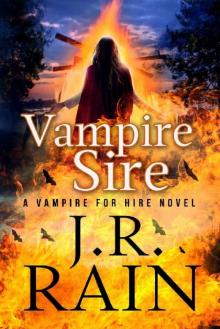 Vampire Sire
Vampire Sire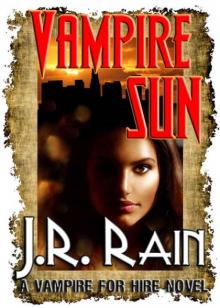 Vampire Sun
Vampire Sun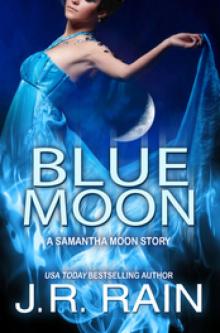 Blue Moon: A Samantha Moon Story
Blue Moon: A Samantha Moon Story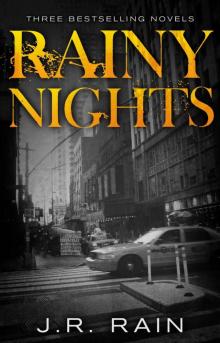 Rainy Nights: Three Mysteries
Rainy Nights: Three Mysteries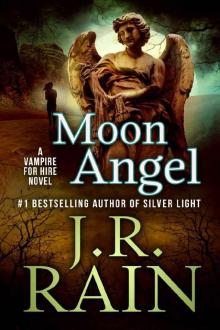 Moon Angel
Moon Angel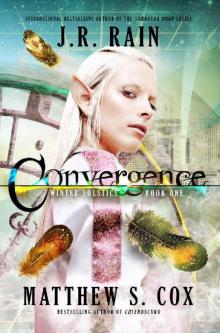 Convergence (Winter Solstice Book 1)
Convergence (Winter Solstice Book 1) Vampires & Werewolves: Four Novels
Vampires & Werewolves: Four Novels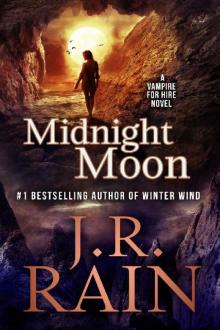 Midnight Moon (Vampire for Hire Book 13)
Midnight Moon (Vampire for Hire Book 13) Vampire Gold: A Samantha Moon Story (Vampire for Hire)
Vampire Gold: A Samantha Moon Story (Vampire for Hire) Moon Extras
Moon Extras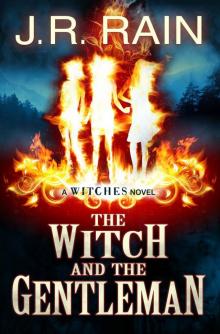 The Witch and the Gentleman (The Witches Series Book 1)
The Witch and the Gentleman (The Witches Series Book 1)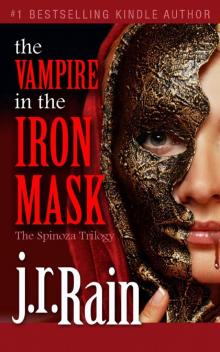 The Vampire in the Iron Mask (The Spinoza Trilogy Book 3)
The Vampire in the Iron Mask (The Spinoza Trilogy Book 3)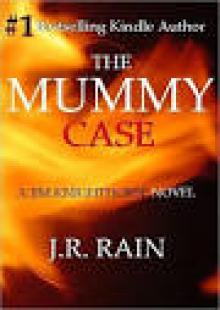 The Mummy Case (Jim Knighthorse Series #2)
The Mummy Case (Jim Knighthorse Series #2)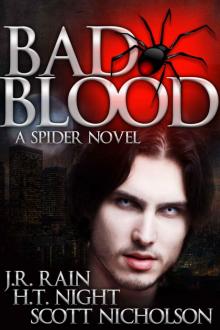 Bad Blood: A Vampire Thriller (The Spider Trilogy Book 1)
Bad Blood: A Vampire Thriller (The Spider Trilogy Book 1)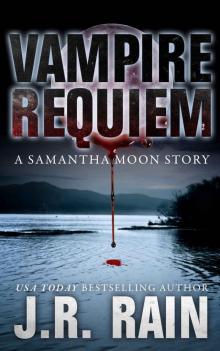 vampire for hire 10.5 - vampire requiem
vampire for hire 10.5 - vampire requiem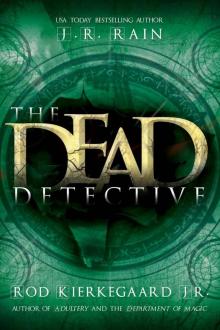 The Dead Detective
The Dead Detective